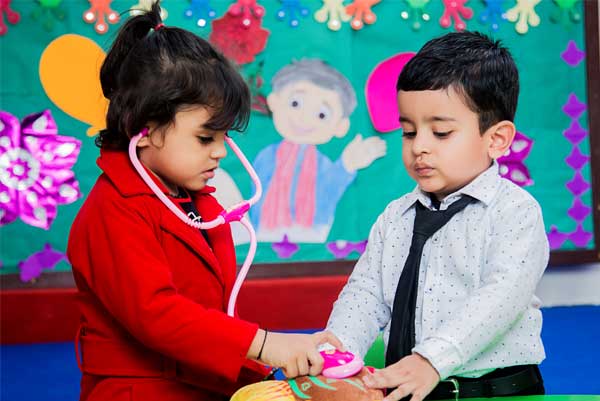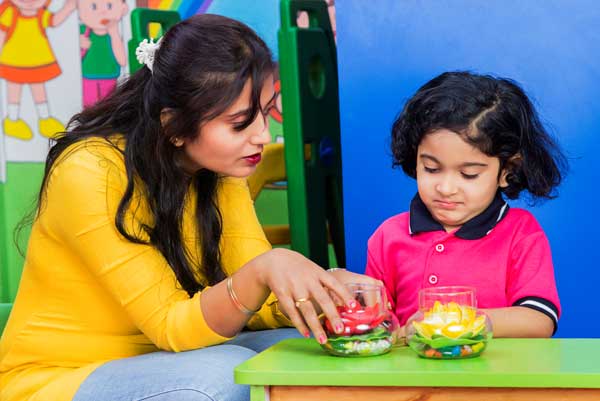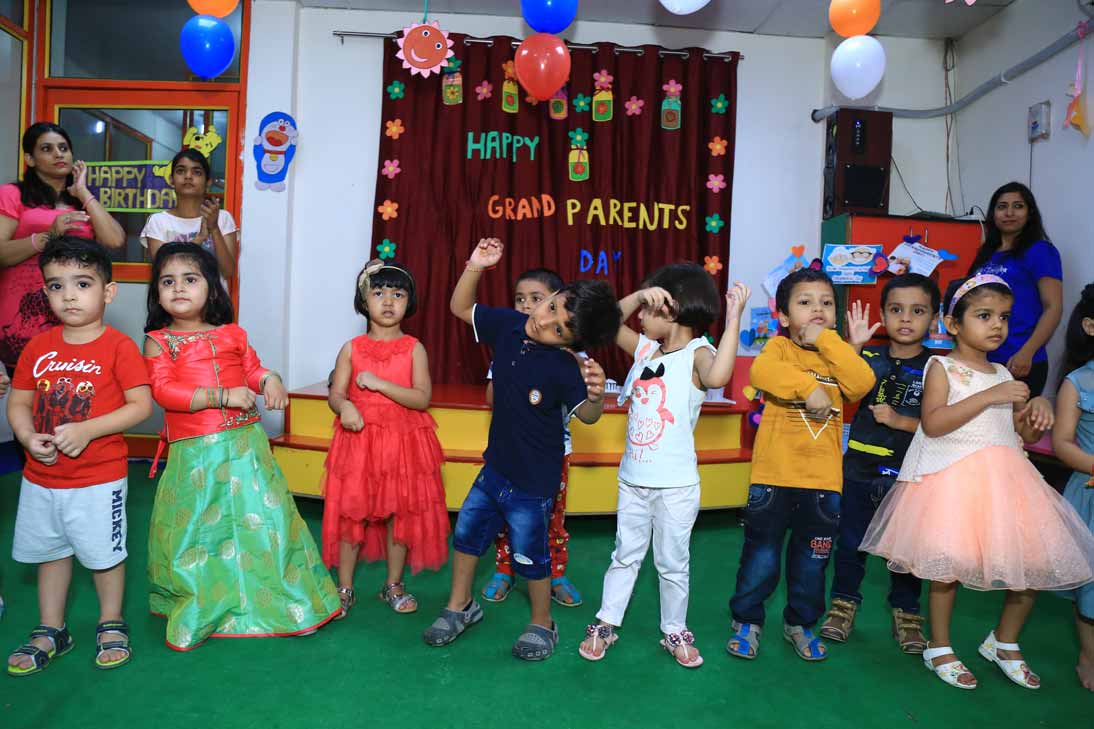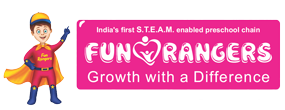Why Preschool ?
While most parents consider Kindergarten the official start of their child’s education, the years preceding this milestone are an important time for learning as well. the preschool years may be the most important learning time of all.
Preschool education is now considered not just a good idea, but very important for a child’s scholastic success. “At preschool, they become exposed to numbers, letters, and shapes. And, more important, they learn how to socialize — get along with other children, share, contribute to circle time.

Preschool education provides your child with an opportunity to start a lifelong love of learning. With the use of age appropriate materials and objectives, you can help your child to practice skills, lay the framework for more advanced learning, and most importantly discover that learning is fun. The motivation to learn is an important factor in school success.
According to Nobel Laureate and Professor James J, Heckman, Ph.D, “Early childhood interventions of high quality have lasting effects on learning and motivation.” This means that providing preschool learning opportunities to your child that ensure learning and development take place hand in hand has lifelong benefits for academic success and more. A child who experiences the joy of learning, of discovery, and of successfully completing age-appropriate tasks at a young age will be more likely to enjoy school later in life, and do better academically.
What Do Kids Learn in Preschool ?
Social and Emotional Development
In preschool, children will learn to strengthen their social and emotional development. Children learn how to compromise, be respectful and problem solve. Preschool provides an environment for children to explore, gain a sense of self, play with peers and build self-confidence. Children learn they can accomplish tasks and make decisions without the help of their parents.


School Readiness
Behavior management is a major part of preschool learning. In preschool, children learn how to be students. Children learn patience, how to raise their hands and take turns. Children also learn how to share the teacher’s attention. Children also learn about routine, following directions and waiting. Quality preschools help children find answers through exploration, experimentation, and conversation. Going to preschool also helps children learn to separate from their parent or caregiver.
Promote Language and Cognitive Skills
Children’s language skills are nurtured in a “language-rich” environment. In a classroom setting, teachers help children strengthen their language skills by introducing new vocabulary during art, snack time, and other activities. Teachers engage students with thought-provoking questions to give children many opportunities to learn language through singing, talking about books and creative play.

Academics

In pre-school pre-math and pre-literacy skills are introduced. Children are taught numbers and letters, but it is taught in a way that is appealing to children at that age. Children sing an alphabet song while following along in a picture book or learn rhymes and chants, which help them to notice the distinct sounds within words. Teachers read stories to children to encourage their listening, comprehension, and expressive language skills. Matching games, sorting games and counting games build children’s understanding of numbers, and sequences. Putting puzzles together encourages children to notice patterns and to work on problem-solving skills.
Children learn best through activities they find interesting, such as songs, story time, and imaginative play. Preschool is not about achieving academic success; it is about creating a well-round child who wants to explore and question their surroundings. In preschool children will gain the confidence of themselves as capable and independent learners.
Self-Confidence
In pre-school, children learn they can actually do things for themselves. Children will learn to wash their hands, go to the bathroom and take off their shoes without an adult doing it for them. Children may have classroom jobs and take pride in helping out in the classroom. Learning new skills helps builds confidence.
A quality early childhood education provides children with cognitive, behavioral and social skills they cannot learn at home. Teachers find it easier to teach a child who possesses a strong preschool education background in language skills, listening comprehension, attention management skills, and a positive attitude toward learning.


